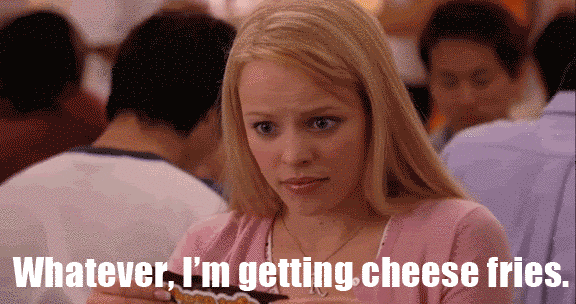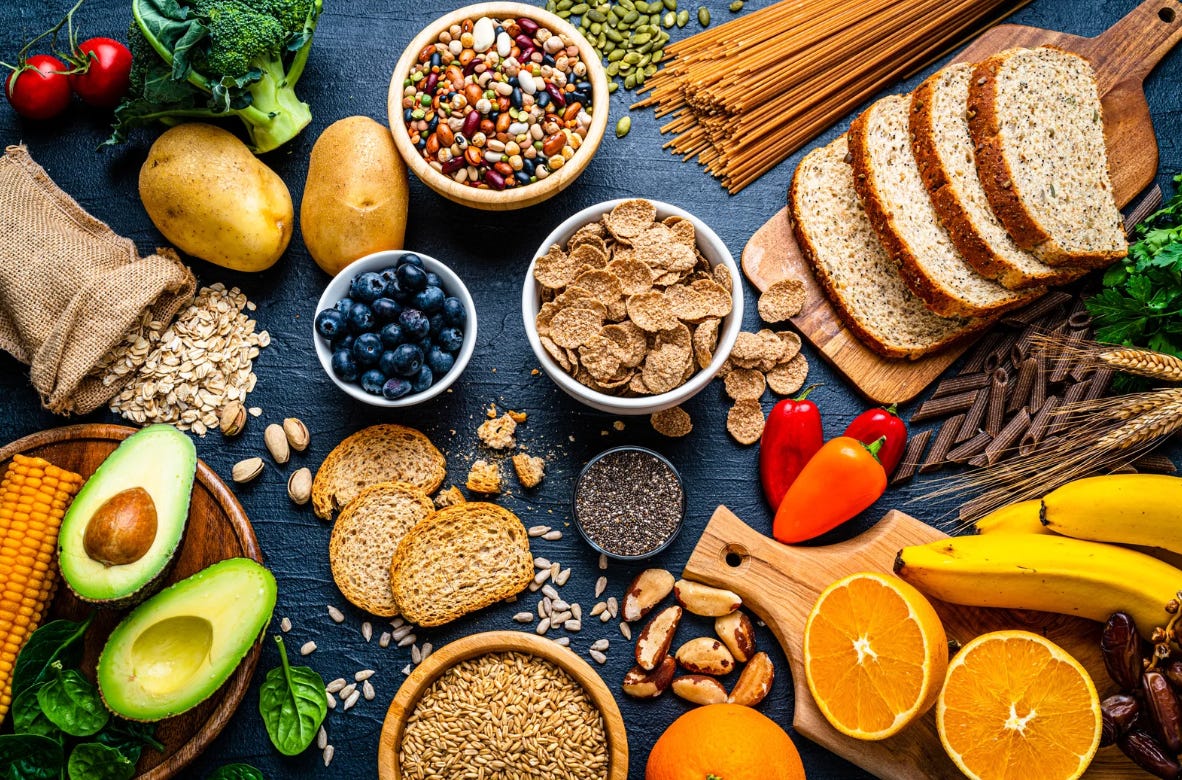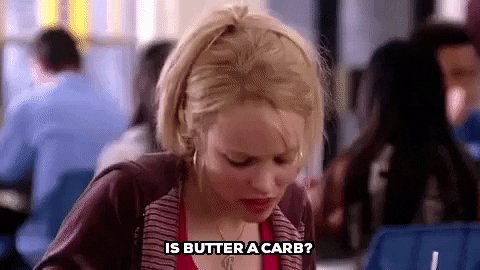Why We Ignore Basic Nutrition and Obsess Over the Bullsh*t
Nutrition is simple. We just love making it complicated.
Drinking water is pointless. Vegetables taste bad. Eating healthy is too hard. Meanwhile, you drop $50 on paleo meal kits and swear that you can’t eat fiber because you’re"gluten intolerant." How did we get here?
I’ve come to the realization that many adults just don’t want to eat healthy. They dismiss simple habits like drinking water and eating vegetables but will shell out cash for juice cleanses and trendy diets. They refuse to eat fruit because it’s loaded with sugar but have no problem downing a triple-shot espresso on an empty stomach.
It’s time we had a talk about nutrition. Because we are making this way harder than it needs to be. It’s time to reframe where your energy with nutrition is going. First, I’m going to cover all the easy things you SHOULD be doing (because they’re, well, easy). Then, I’ll break down the more complicated stuff and show you why it’s actually not that complicated.
The Basics: The Stuff You Should Be Doing Every Day
1. Drink Water. Your body is 70% water. Not soda. Not oat milk lattes. Water. It helps with digestion, joint lubrication, energy, skin, and literally every function in your body. Just drink it. Cold, hot, warm with some lemon, over ice.
2. Eat Vegetables. No, they don’t taste bad. You just weren’t raised on Doritos. Raw, roasted, steamed—find the options that suit your taste buds. These snazzy little things give us vitamins and minerals, promote digestion, and regulate blood sugar levels, to name a few benefits. Short on time? Frozen is just as good as fresh.
3. Eat Fruit. No, it’s not “bad for you.” Yes, it has sugar. So does your overpriced green juice. Fruits contain phytochemicals that help protect against heart disease, stroke, cancer, and diabetes, boost your immune system, and contribute to clearer skin.
4. Eat Carbs. The real kind. Whole grains, beans, root veggies. You need fiber, and 97% of people don’t get enough. Fiber helps your gut, your cholesterol, your blood sugar, and your digestion. According to current research, the fastest-growing cancer in adults aged 30-50 is colorectal cancer, with a significant rise in early-onset cases. The easiest ways to prevent this? Don’t smoke, limit alcohol, move your body, and eat more fiber.
5. Eat Fat. The good kind—avocados, nuts, seeds, vegetable oils, fatty fish, dark chocolate. Yes, dark chocolate. You're welcome. Helps with metabolic regulation, brain function, and heart health.
6. Eat Protein. I wrote a whole Substack on this so adding the link here.
The Big Stuff: Let’s Uncomplicate It
1. "I need to eat six small meals a day." No, you don’t. Eat when you’re hungry. Aim for a combo of protein and fiber, fiber and fat, or fat and protein at each meal. That’s it. Most people will fall into 3-4 meals a day. This also means not waiting all day to eat and then having one massive meal. That messes with your system, increasing insulin resistance (which can lead to type 2 diabetes), poor digestion, and higher risks of high blood pressure and cholesterol. Make time to eat, it’s a human necessity.
2. "Eating healthy is too expensive." You know what’s expensive? Having other people cook your food. Whether you’re dining out at every meal or getting packaged food, you’re paying for convenience. Buy some meat, some rice, and raw or frozen veggies, and see how many meals you can make. Eating healthy isn’t expensive—it’s just boring. You want to be entertained? Watch Netflix. Stop expecting your meals to be a Broadway production. And if you struggle with grocery shopping, I made video on how to make it easier. Check it out!
3. "I need to follow paleo/keto/intermittent fasting." First off, all diets are temporary. Because they signify you doing something for a short amount of time. Mind you, if you’re under a doctor’s care, there are exceptions. But for the everyday person looking to drop some weight? No shortcuts. Just eat real meals that include protein, healthy fats, and fiber. If you’re concerned about certain foods bothering you, look into getting a food sensitivity test. This can help uncover specific foods that don’t sit well with you. For me, peanut butter, certain legumes, and whey protein powder just don’t work. Are those bad foods? No. They just don’t agree with me. If a food doesn’t agree with you, take note. If a lot of foods seem to be bothering you, it could be a bigger issue—talk to your doctor.
At the end of the day, nutrition isn’t hard—we just tend to overcomplicate it. Small, consistent changes can make a big impact. If you're ready to take control of your health and make it a priority, join me for my upcoming workshop where I'll show you exactly how to do it in a way that works for your life. Let’s simplify this together.
Let’s Build Your Roadmap
If you’re done with the extremes and ready for a sustainable path forward, let’s map it out together in a free Fitness Roadmap Session.
We’ll get clear on where you are, what’s keeping you stuck, and what it’ll take to build strength, energy, and consistency that lasts.
📌 Grab your session here → [Let’s Schedule!]
Note: all of the topics I discussed here come from the framework of being a Board Certified Health and Wellness Coach and Certified Nutrition Coach. I am passionate about putting information out into the world that helps make health and nutrition EASIER. So all of this information comes both from a place of love AND education.





